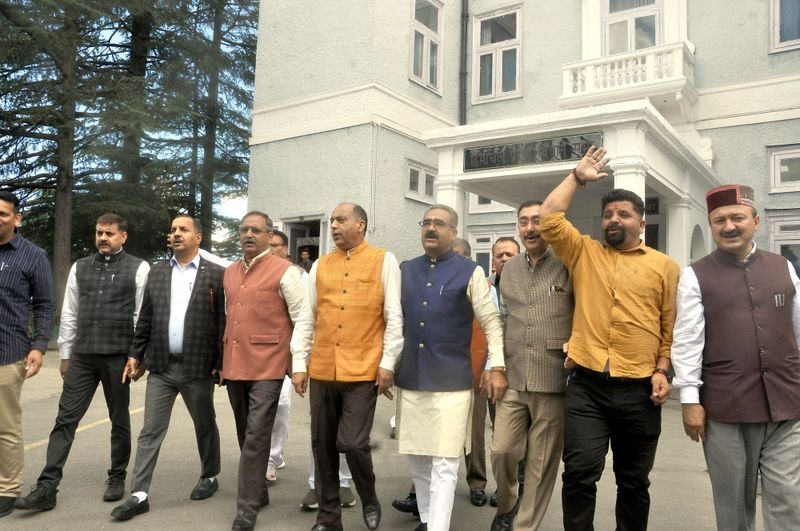
Assembly Protest Over Pending DA Payments
During the ongoing monsoon session of the Himachal Pradesh Assembly, BJP legislators intensified pressure on the state government over the delayed payment of 11% Dearness Allowance (DA) to government employees. The protest erupted during the Question Hour, with Una MLA Satpal Singh Satti raising concerns about the pending financial obligation. Chief Minister Sukhvinder Singh Sukhu had earlier promised DA payments in his Budget speech, but the promise remains unfulfilled. Opposition leaders, including Leader of the Opposition Jai Ram Thakur and Jaswan MLA Bikram Singh, accused the government of misleading the House and failing to honor its commitments. The confrontation escalated as BJP legislators raised slogans and eventually walked out of the Assembly, creating a chaotic atmosphere led by Speaker Kuldeep Pathania’s attempts to restore order.
Political Accountability and Employee Grievances
Thakur emphasized that the Congress party’s rise to power was fueled by its pledge to protect government employees’ interests. He argued that the current administration is now blaming the opposition for the DA delay, despite the Congress government having controlled the state for over two and a half years. The MLA highlighted the contradiction in the administration’s stance, accusing it of abandoning its earlier promises. Meanwhile, the Chief Minister defended his government’s financial position, citing a Rs 4,800 crore loss due to the Old Pension Scheme (OPS) implementation. He claimed that adopting the New Pension Scheme (NPS) could have generated annual revenue of Rs 1,600 crore, but the state’s financial constraints have delayed DA payments.
Financial Challenges and Pension Scheme Disputes
Sukhu further explained that his government had already cleared Rs 10,000 crore in arrears and partial DA installments, which the previous BJP regime had neglected. He attributed the current financial shortfall to the state’s reduced Revenue Deficit Grant (RDG) from Rs 11,000 crore to Rs 3,200 crore annually. The Chief Minister acknowledged the 2024-25 Budget’s DA allocation but cited economic instability as the primary obstacle. Separately, he revealed that Rs 9,000 crore in NPS funds remains with the Central Government, which he blamed for stalling additional borrowing due to the state’s OPS implementation.
Government’s Defense and Opposition Counterarguments
The Chief Minister’s defense centered on the financial strain caused by the OPS, which he argued led to significant revenue losses. However, critics from the BJP accused the Congress of using fiscal challenges as an excuse for delayed payments. The protest underscored growing tensions between the ruling party and its constituents, with employees demanding accountability for unmet promises. As the debate continued, the Assembly remained divided, reflecting deeper political and financial complexities in managing public welfare obligations.
Broader Implications for State Governance
The DA delay controversy highlights systemic challenges in balancing fiscal responsibility with employee welfare. While the government cites economic constraints, the opposition insists that delayed payments undermine trust in the administration. This dispute exemplifies the broader struggle between state governments and public sector workers, where financial decisions often intersect with political accountability. As the situation unfolds, the resolution of this issue could set a precedent for future interactions between state authorities and their workforce, shaping the political landscape of Himachal Pradesh.




